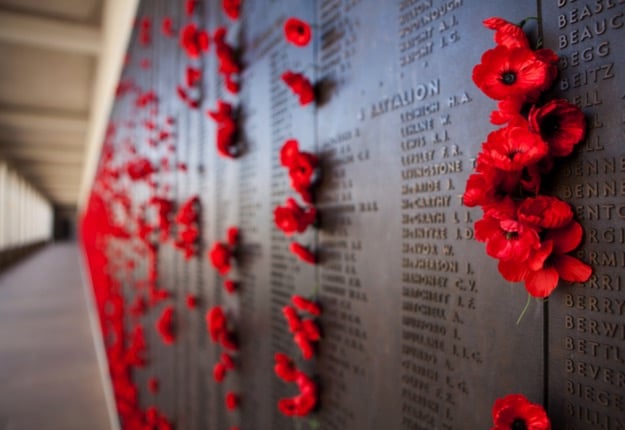‘Absolutely nothing’ sang Edwin Starr in 1970. Of course, he was referring to fighting them – and this I agree with whole-heartedly – but when it comes to teaching our children about these events which mar the pages of history, it’s more like absolutely everything.
So, with the commemoration of the Gallipoli battle coming up, here’s why it’s worth taking a few moments to talk about war with your children around 25 April.
Inspire respect and gratitude
Though now over 100 years ago, the children of today are still indebted – just as we are – to the generation that was all but torn apart by the Great War.
And as few from that generation live to tell their story first hand (certainly none that experienced overseas warfare) it is the duty of those who have learnt about it to pass down the stories, and the respect that they ignite. And the generation that I speak of is worldwide.
With the jingoistic nationalism that the Anzac legend tends to create, it can be easy to forget to acknowledge those that the war was fought against!
Fortunately, it is not hard at all to find accounts by the ‘enemy’ that show that these soldiers were no different from our own, and deserve the same esteem.
War memorials serve to display the gravity of war. Take a walk to your local memorial and read some of the names engraved. A few hundred or thousand can seem insignificant when spoken – even when referring to lives lost – until you see them all written out in one place and the vast space required to list them.
Breed empathy
Empathy is arguably our most important social skill, integral in building positive relationships and communities. While it is a natural skill, it can be hard for children to exercise regarding an event of such enormity.
When teaching young kids about the war it can be easy to shy away from the reality and gravity of the situation that hundreds of thousands of young men and women found themselves in. But it is exactly these sobering details that need to be relayed to encourage empathy from children who otherwise could not possibly imagine what transpired, and how.
One way to help cultivate empathy is to humanise those involved. With names and faces given to soldiers and nurses, they become real human beings – like dad, mum or uncle John – and not just one of a battalion.
Research one particular person and talk about the war through their own experience of it.
Another idea is to read a piece of historical fiction about this time told through the eyes of a child of a similar age to yours. It is much easier to empathise when a common factor, such as age, comes into play. In particular, look out for ANZAC Biscuits by Phil Cummings and Owen Swan (suitable for Grades 1 – 5) and Evan’s Gallipoli by Kerry Greenwood (suitable for Grade 6 – 8).
Make the war to end all wars a reality
World War I was the ‘war to end all wars’ except that… it wasn’t. Nor was the next one or the one after that. Could it be that the war to end wars never does because the ones that preceded it are never sufficiently taught?
Those who recognise the significance of war, its causes and its repercussions, would surely create the sort of leaders and civilians who would do everything in their power to keep it from happening again.
Teaching the war, huh, yeah, what is good for?
Absolutely everything.
Do you talk to your kids about Anzac Day and other wars in our history? Do you think it’s importance for parents to have these discussions with our kids? Tell us in the comments below.






















12:33 pm
2:06 pm
11:51 pm
7:09 am
11:32 am
8:34 am
7:31 am
11:50 am
10:37 pm
6:32 am
10:04 pm
8:08 pm
10:45 pm
7:50 pm
1:44 pm
4:38 am
8:40 am
7:37 am
12:13 am
12:52 pm
- 1
- 2
- …
- 4
- »
Post a commentTo post a review/comment please join us or login so we can allocate your points.